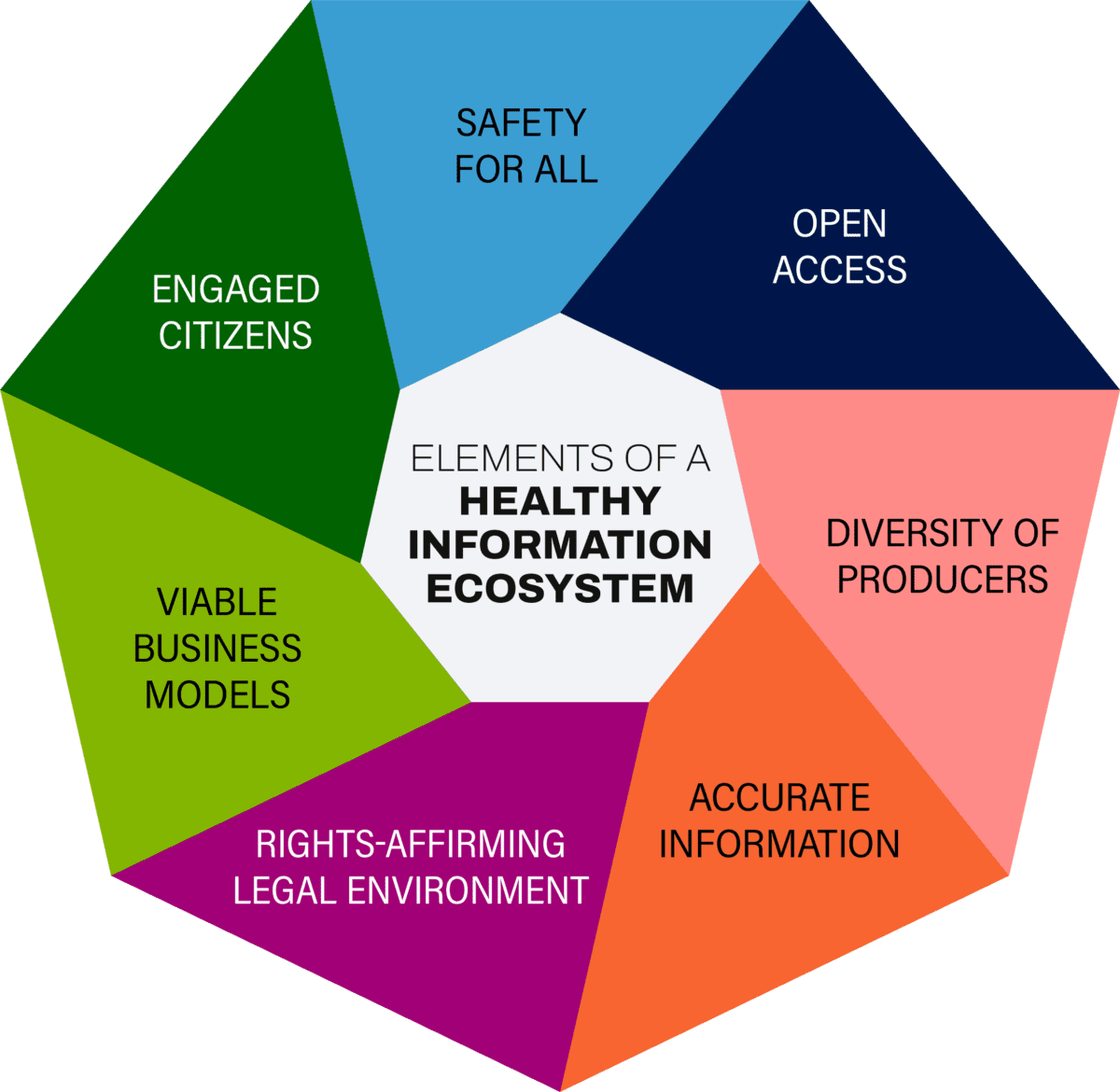
At the core of Internews’ strategy is the drive to improve the health of information ecosystems.
In the simplest terms, information ecosystems include the supply side of a media landscape, such as infrastructure, the regulatory environment, production and dissemination tools, content, producers, and consumer data. Information ecosystems also recognize the demand side, or human behavior side, of the ecosystem: how people access, trust, source, share, and value information. In our new strategy, we identify seven key elements that together define the health of any information ecosystem. These elements underpin our theory of change, program design, and thought leadership.
Seven Elements of a Healthy Information Environment

1. Open, Affordable Access
We work to ensure that everyone, everywhere is able to access the news and information they need online or offline. We support an Internet that is open, reliable, accessible, and affordable to everyone.
3. Accurate and Locally Relevant News and Information
We invest in partners to produce accurate and locally relevant news that people need and value, in the languages they understand. Our support is rooted in the time-tested principles and practices of independent journalism: accuracy, fairness, inclusion, transparency, and accountability.
5. Viable Business Models
We support producers of trusted, relevant news and information to expand and deepen their relationships with their audiences, make data-driven decisions, develop business capacity, and attract revenue so they can thrive and serve their communities.
7. Safety for All Who Produce and Engage with Information
We work to address the physical, psycho-social, legal, and digital security threats facing all those who take great personal risk to bring information to their communities: technologists, journalists, content producers, filmmakers, and their subjects and sources. We prioritize online and offline security, safety, and privacy for everyone who engages with the information they need and value.
2. Diversity and Plurality of Producers
In addition to journalists and the news media, we work with the full spectrum of content creators producing inclusive, high-quality information that meets the needs of diverse audiences and fosters open dialogue among different communities.
4. Rights-Affirming Legal and Regulatory Environment
We work with policy groups, legal and regulatory bodies, governments, civil society organizations, platforms, and technology companies to foster the transparency, accountability, legal protections, and healthy market conditions needed for independent media, an open Internet, and freedom of expression to thrive.
6. Informed and Engaged Citizens
We prioritize community-engagement approaches which focus on listening, rooted in a deep understanding of how people access, trust, value, need, share, seek out, and add their voice to the news and information that is relevant to them. We also strive to improve media, information, and data literacy so people are better able to discern the validity and integrity of the news and information they consume.